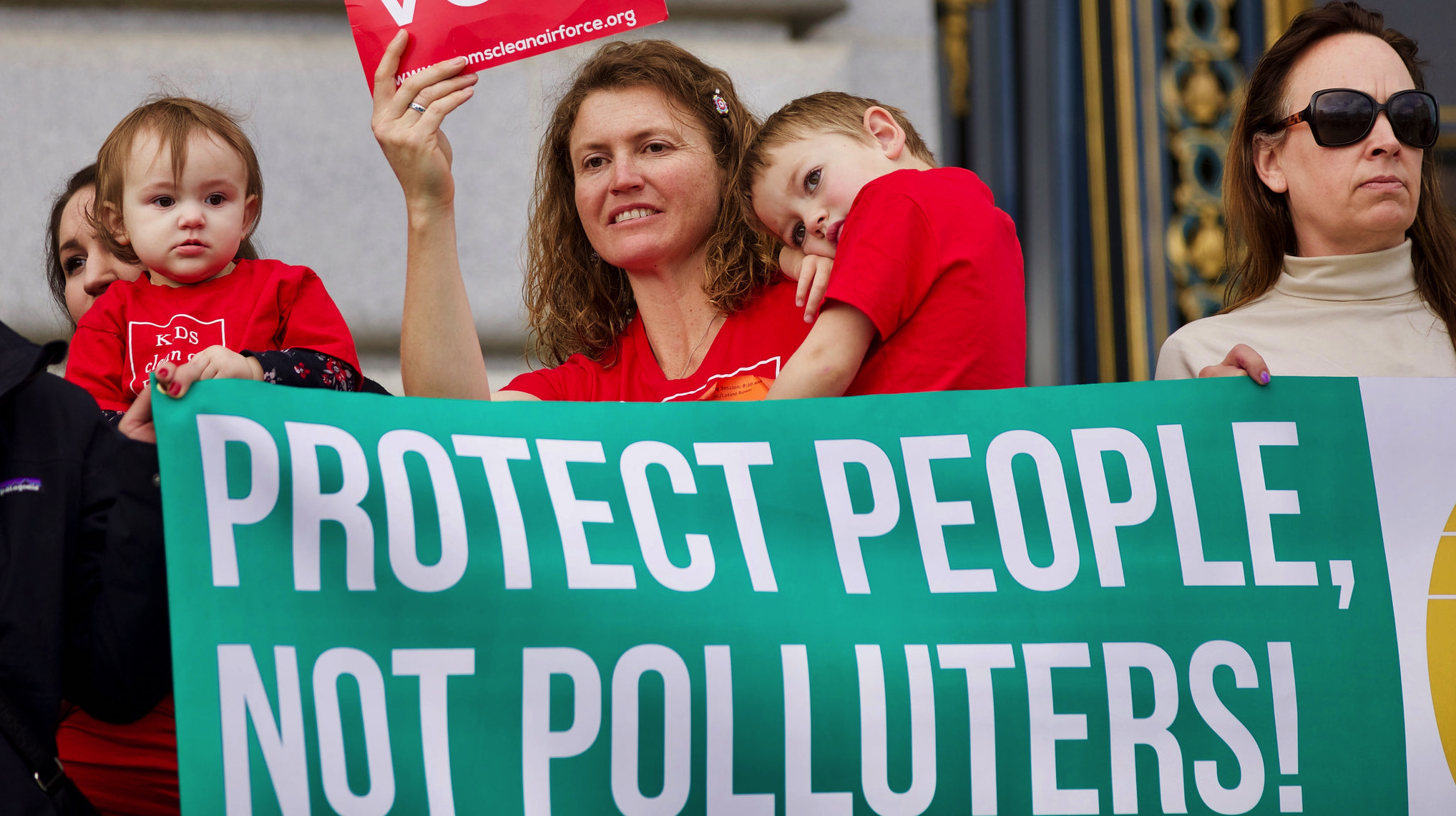The EPA held its final public listening session on repealing the Clean Power Plan in Gillette, Wyoming, on Wednesday. The most striking points made by those who showed up to testify weren’t about politics, industry, or even climate change — they were about the fight for human life.
By the EPA’s own estimates, the Clean Power Plan would prevent 90,000 pediatric asthma attacks and save 4,500 lives each year. Since last fall, when EPA Administrator Scott Pruitt announced his proposal to end the Clean Power Plan, more than a thousand people turned out to listening sessions in four cities across the U.S.
Yet the agency doesn’t seem to be taking its own advice or heeding the pleas of people who voiced their concerns. As an EPA press secretary told Grist last month, “It’s really just that people asked for more listening sessions, so we’re giving them more listening sessions.”
If these sessions were indeed about “listening” and not about paying lip service, here’s a sampling of who showed up:
- Coal miners spoke up for the Clean Power Plan. “We’re still literally dying for you to help us,” Kentucky coal miner Stanley Sturgill said at the public hearing in West Virginia. Sturgill, along with other miners, spoke up about the health repercussions of their work: He’s been living with black lung disease after more than four decades in the industry. “For the sake of my grandchildren and yours, I call on you to strengthen, not repeal, the Clean Power Plan,” he said. After the West Virginia hearing — supposed to be the only hearing on the matter — the EPA scheduled three more listening sessions in response to public outcry.
- As did Missouri grandparents. There was strong support for the plan at the second hearing in Kansas City, Missouri. “There was no comparison between the emotion in, for example, the statement read on behalf of the Koch-funded Americans for Prosperity … and the two speakers who followed him, both of whom lost their composure when they spoke about how much a repeal would hurt their grandkids,” the Kansas City Star editorial board wrote in an editorial that said there was no good reason to repeal the plan.
- Of course, so did “polar bears.” The Center for Biological Diversity held a “polar bear funeral” in protest prior to the listening session in San Francisco. The testimony made it clear that human lives are at stake, too. “Implementing the Clean Power Plan would finally cut the dirty power-plant pollution that drives climate change and makes people sick,” the Center’s Climate Law Institute’s Vera Pardee said in a statement. She voiced frustration that her pleas were likely falling on deaf ears: “The EPA’s listening session is a sham. Scott Pruitt is hell-bent on scrapping the Clean Power Plan for his friends in the fossil fuel industry.”
- And doctors and nurses, too. In Wyoming, medical workers stood up to fight what they see as a fundamental threat to Americans’ health. “I have had experiences of working with my healthcare colleagues in desperate attempts to resuscitate a child who has experienced a cardiac arrest due to their acute asthma attack,” Vera Sean Mitchell of the Alliance of Nurses for Healthy Environments said during her testimony. “The inflammation caused by breathing polluted air not only has immediate effects, but can permanently scar children’s airways and lungs, increasing their incidence of permanent, lifelong respiratory diseases.”
As Carrie Nyssen, vice president of advocacy and air quality at the American Lung Association, told Grist before testifying in support of the Clean Power Plan on Wednesday: “We just want to do whatever can be done to protect the health of our children, and this is certainly one of those things.”




